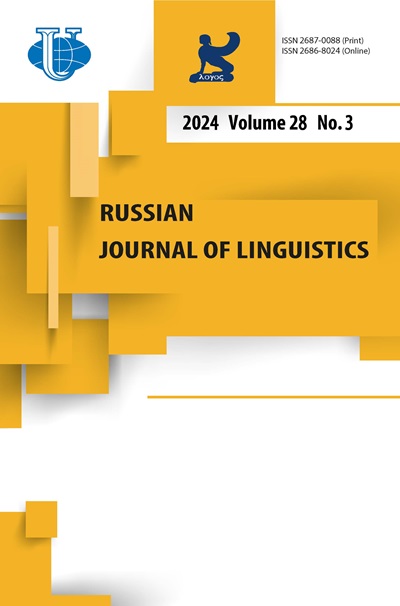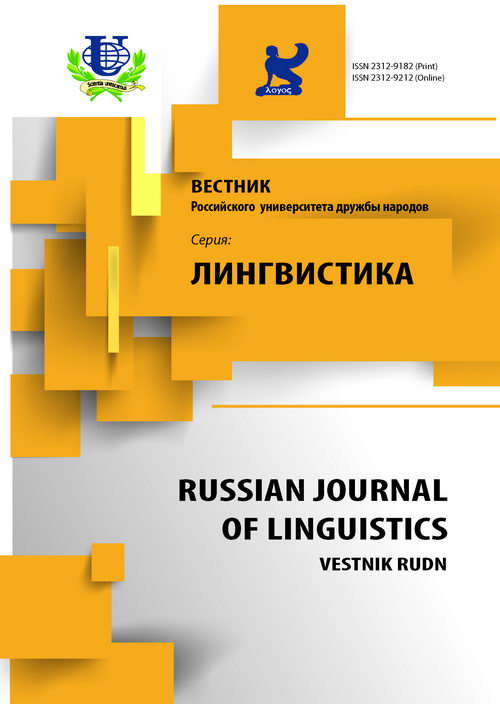Межкультурная коммуникация и инвалидность с позиций коммуникационного комплекса
- Авторы: Пэрриш-Спраул Д.1
-
Учреждения:
- Университет Индианы Университет Пердью
- Выпуск: Том 19, № 4 (2015)
- Страницы: 101-110
- Раздел: Статьи
- URL: https://journals.rudn.ru/linguistics/article/view/9261
Цитировать
Полный текст
Аннотация
В контексте межкультурной коммуникации возникают проблемы, которые не столь очевидны в рамках одной культуры. Это обстоятельство значимо в связи с тем, что благодаря путешествиям и новым технологиям все более значительное число иммигрантов, предпринимателей, туристов и т.д. участвуют в подобного рода интеракциях. 10% населения мира составляют инвалиды, которые все в большей степени включаются в обычную жизнь общества и путешествуют в другие страны. Исследования доказывают, что инвалиды часто воспринимаются как маргиналы и подвергаются дискриминации в своей собственной стране. Еще большие сложности возникают при межкультурном общении здоровых людей и инвалидов. Коммуникационный комплекс - метатеоретический подход к коммуникации, объединяющий конститутивное определение коммуникации с ее нейробиологической трактовкой, - предлагает более глубокое и в то же время практико-ориентированное объяснение уровня сложности такого взаимодействия. В статье кратко анализируется данный подход к межкультурной коммуникации, предлагаются перспективы исследований, намечаются практические шаги по учету инвалидности при анализе либо отработке соответствующих коммуникативных навыков.
Список литературы
- Braithwaite, D.O. and Thompson, T.L. (1999). Handbook of communication and people with disabilities: Research and application. New York: Routledge.
- Cozolino, L. (2014). The neuroscience of human relationships: Attachment and the developing social brain. 2nd Edition. New York: W.W. Norton.
- Gonzalez, A. and Chen, Y-W (2015). In our voice: Essays in culture, ethnicity, and communication. 6th Ed. New York: Oxford University Press.
- Hasson, U., Ghazanfar, A.A., Galantucci, B., Garrod, S. and Keysers, C. (2012). Brain-to-brain coupling: A mechanism for creating and sharing a social world. Trends in cognitive sciences. 16 (2). 114-121.
- Luey, H.S., Glass, L. and Elliott, H. (1995). Hard-of-hearing or deaf: Issues of ears, language, culture, and identity. Social Work. 40, (2). 177-181.
- Parrish-Sprowl, J. (2014a). Communication complex. In T. Thompson (Ed.), Encyclopedia of health communication. (Vol. 3, pp. 211-213). Thousand Oaks, CA: SAGE Publications, Inc. doi: http://dx.doi.org/10.4135/9781483346427.n78.
- Parrish-Sprowl, J. (2014b). Making Change That Matters: A Story of Social Transformation and CMM. In S. Littlejohn and Sheila McNamee, Eds. The Coordinated Management of Meaning: A Festschrift in Honor of W. Barnett Pearce. New Jersey: Farleigh Dickenson University Press. p. 291-312.
- Parrish-Sprowl, J. (2013). Communication Complex: Achieving improved public health through greater coordination and collaboration. A world united against infectious diseases: Cross-Sectoral solutions: Proceedings of the Prince Mahidol Awards Conference. Bangkok, Thailand 263-266 (http://www.pmaconference.mahidol.ac.th).
- Parrish-Sprowl, J. (2012). Organizational performance: Moving from communication simple to communication complex. Organizational Consulting. (2) 38. p. 18-20.
- Parrish-Sprowl, J. (2009). The implications of globalization for applied communication research. In K. Cissna & L. Frey, Ed. Handbook of applied communication research. New York: Routledge. p. 257-279.
- Parrish-Sprowl, S. and Parrish-Sprowl, J. (2014). Suggestions for a Heuristic Turn in the Conversation on Posttraumatic Growth. Transformative Learning Conference Proceedings, Columbia University, New York. 787-792.
- Pearce, W.B. (2007). Making social worlds: a communication perspective. Malden, MA: Blackwell Pub.
- Prestowitz, C. (2005). Three billion new capitalists: The great shift of wealth and power to the east. New York: Basic Books.
- Sachs, J.D. (2005). The end of poverty: Economic possibilities for our times. New York: Penguin Press.
- Siegel, D.J. (2012). The developing mind: How relationships and the brain interact to shape who we are. 2nd Ed. New York: Guilford Press.
- Siegel, D.J. (2010). Mindsight: The new science of personal transformation. New York: Bantam Books.
- Ting-Toomey, S. and Chung, L.C. (2011). Understanding intercultural communication. New York: Oxford University Press.
- WHO (2006). Convention on the rights of persons with disabilities.
- http://www.un.org/disabilities/convention/questions.shtml.
- WHO (2006). Convention on the rights of persons with disabilities. http://www.un.org/ disabilities/convention/facts.shtml.

















